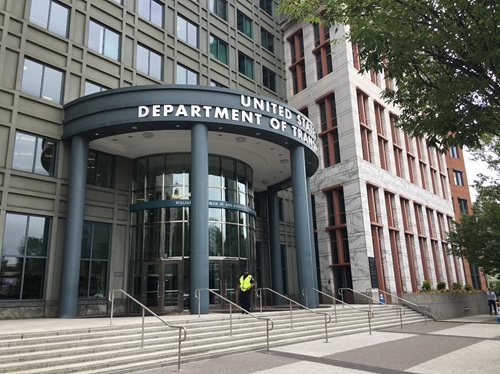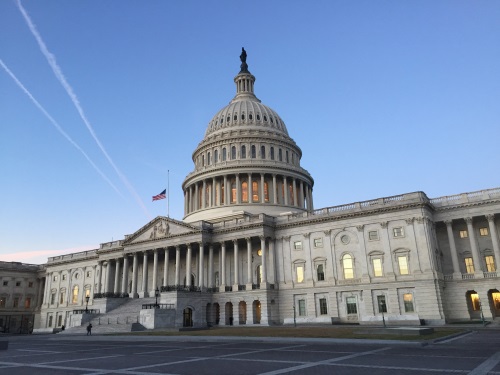The Reverend Raphael Warnock, D-Ga., and Jon Ossoff, D-Ga., both won narrow U.S. Senate runoff election victories in Georgia on January 5, splitting the U.S. Senate 50-50 between the Democratic and Republican parties – making incoming Vice President Kamala Harris the key tie-breaking vote in the upper chamber of Congress.
With the runoff victories in hand, Democrats have complete control of Congress as well as the White House.

That also means key leadership changes for transportation-related Senate committees will be ahead as well. For the Committee on Environment and Public Works, current ranking member Sen. Tom Carper, D-Del., is in line to become chair. For the Committee on Commerce, Science, and Transportation, current ranking member Sen. Maria Cantwell, D-Wash., is in line to become committee chair.
Over at the Committee on Appropriations, current Ranking Member Sen. Patrick Leahy, D-Vt., is in line to become chairman, along with Sen. Jack Reed, D-R.I., as chairman of the Transportation and Housing and Urban Development Subcommittee.

According to news reports, the Democrats’ sweep also offers “important implications” for the nation’s economy. In the near term, that could result in a $750 billion to $1 trillion pandemic relief package this year on top of the $900 billion in aid signed into law last month, according to Matthew Luzzetti, chief U.S. economist at Deutsche Bank AG.
The precise impact of a package on economic growth would depend on the details, but it presents “a sizable upside risk to our growth forecast” for the United States in 2021, which is currently pegged 4.3 percent gross domestic product growth.
Jefferies Chief Financial Economist Aneta Markowska said in an outlook update that while she expects the initial boost to the U.S. economy to come from fiscal stimulus, by the second quarter, wider availability of the COVID-19 vaccine will allow the private sector to “take the baton” by unleashing pent-up demand in service spending. Meanwhile, she believes ultra-low inventories will continue to drive manufacturing and housing activity.

Yet some sectors of the transportation industry – especially public transit systems – continue to face tough fiscal challenges largely due to the ongoing COVID-19 pandemic.
Fitch Ratings noted in a January 5 update that the $14 billion in COVID-19 relief funding being issued to U.S. transit systems – with more than $4 billion of that going to the New York Metropolitan Transportation Authority in 2021 – may only “temporarily” stave off substantial service reductions and layoffs.
“The MTA is forecasting a return to a ‘new normal’ ridership level – the equivalent of 90 percent of the pre-pandemic trend – by 2024 in the best-case scenario,” Fitch noted in its update. “[We] expect ridership to remain highly sensitive to the effective distribution of coronavirus vaccines and widespread inoculation, and the permanency of the transition to remote work and migration to lower-density suburbs.”
 Top Stories
Top Stories
USDOT Issues $1B in Local Road Safety Funding
January 2, 2026 Top Stories
Top Stories

